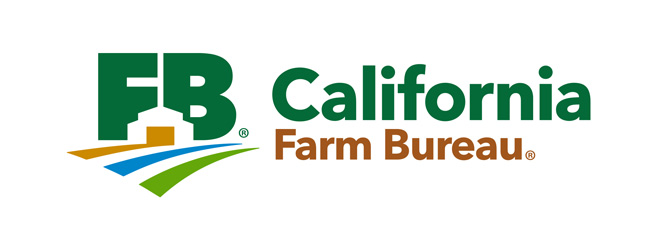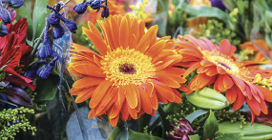
May 6, 2021 - By Kevin Hecteman - After suffering a severe shock during the early days of the COVID-19 pandemic, California flower growers say they're experiencing unprecedented demand for the upcoming Mother's Day holiday.
"This is going to be a very strong Mother's Day for the flower industry," said Robert Kitayama, whose family grows flowers in Watsonville. "Demand is just crazy right now." (Left) Demand has jumped for gerbera daisies and other flowers, and growers say they expect the trend to continue past Mother’s Day.
(Left) Demand has jumped for gerbera daisies and other flowers, and growers say they expect the trend to continue past Mother’s Day.
Photo/Kevin Hecteman
Steve Dionne, executive director of the California Association of Flower Growers and Shippers, said demand is "historically high," on top of a stronger-than-expected 2020.
"Although we don't have the same supply-disruption issues that were in place last year, there's a supply issue simply from the standpoint of demand is so high," Dionne said.
Allan Nishita, who runs a flower wholesale business in Sacramento, said he's asking his customers to be patient.
"Going into this holiday, we try to tell everybody that product is tight and try to be flexible," Nishita said.
California farms account for about 74% of U.S. cut flower wholesale value.
"After the pandemic slammed the brakes on the flower business a year ago March, no one knew what to expect for Mother's Day in 2020, and it caught everybody off guard because it was a busy holiday," Nishita said. "It just seems like from that period to now, it's continued."
Kitayama said the pandemic prompted people to use flowers to do their talking for them.
"It's been very difficult for people to be able to express emotions," Kitayama said. "You know, 'I love you,' 'thinking of you,' 'thank you,' 'I'm sorry,' sympathy—all those things. If you can't visit someone to express those, flowers have been a very popular way for people to do that."
Beyond Mother's Day, events may combine to empty greenhouses and coolers around the state.
During the next 18 to 24 months, "there's going to be a huge demand, this pent-up demand, whether it's graduations, weddings, anniversaries, whatever celebration people have," Kitayama said.
Nishita said event planners who have largely been absent the past year have begun to return.
"As the vaccination rates go up and the levels in the hospitals and all seem to stabilize, I would think things will open up more, which would then open up for our event planners or wedding type of customers, schools and such," Nishita said, adding that fall is a busy wedding season.
"I'm imagining that 2021 could be off the board when it comes to weddings," he said.
Dionne said demand traditionally tails off after June, which can be a blessing in disguise.
"Come July and August, everybody can take a bit of a deep breath and get ready for what I expect to be an absolutely historically high-demand fall season," Dionne said, attributing the demand to autumn weddings and the return of corporate parties and other events.
Though Dionne said he foresees pent-up demand playing itself out, he also expects a new normal to emerge from the pandemic.
"What I don't think is going away is the fact that flowers are now being consumed by a different consumer profile for different reasons," he said.
Through the pandemic, Dionne said he has seen more of a European cultural approach among Americans.
"They're wanting to have fresh flowers in their personal spaces regularly," he said. "This is how it's been in Europe for forever."
Citing this "cultural trend" and what he called "the Instagram and TikTok effect," Dionne said flower purchases are taking hold of a different demographic than the business has traditionally served.
"I think that's an enduring trend, but it is up to us as an industry to come together and promote that," he said, adding that for people in the flower business, the goal is to "understand better what that trend looks like" and "stay in the good graces of all these new consumers that are experiencing flowers in a new way."
To that end, his association is working to understand what's on the minds of flower buyers, and devising new ways to market and deliver to them.
"What I expect to see happen is that there will be new flower outlets that none of us could sit here and think of right now," Dionne said.
But ramping up production to meet expanding demand can be difficult.
"We try to maximize all the greenhouse space we have," Kitayama said. "We've changed several of our crops to crops that we can, one, forecast, and another, that we can turn over quicker. So we're trying to accommodate that demand."
For example, Kitayama has boosted production of ranunculas and miniature calla lilies to meet customer expectations.
Dionne said a farmer's ability to raise more flowers "really depends on the nature of the flower farm."
"Land values are very high in California," he said. "I don't know that the factors are so stable right now that people are making long-term capital investment decisions and expanding their operations."
(Kevin Hecteman is an assistant editor of Ag Alert. He can be contacted at khecteman@cfbf.com.)
Reprinted with permission: California Farm Bureau Federation








